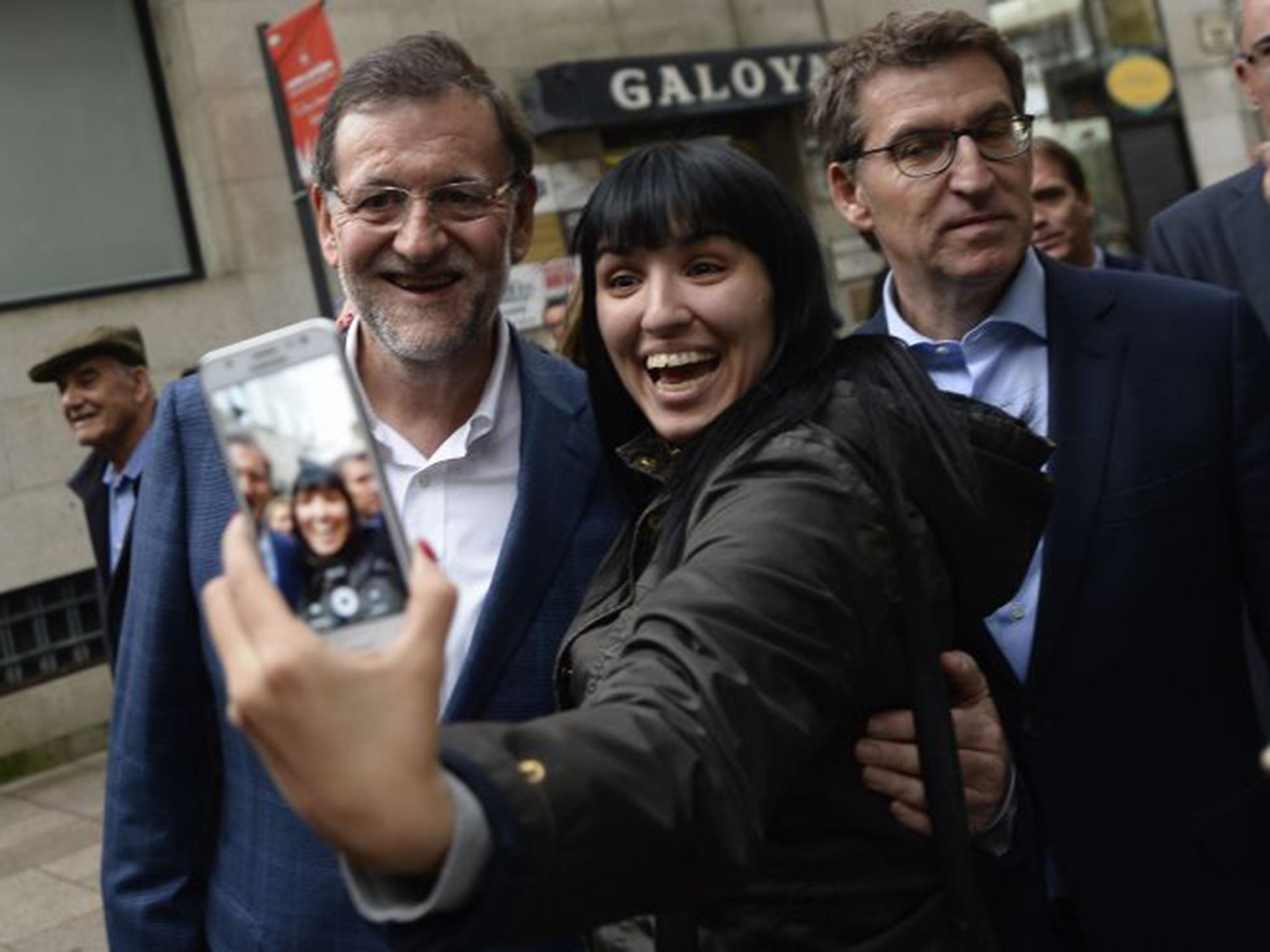Spain elections: He stinks on camera but dour PM Mariano Rajoy is still in the picture
More than a fifth of people are without a job, and neither austerity nor corruption allegations has done nothing for the Prime Minister’s popularity

In an age when presentation is as important as policies for political leaders, Spain’s Mariano Rajoy, who faces a general election on Sunday, is a most unlikely Prime Minister.
He is bad on television, his performances in parliament leave a lot to be desired and he is awkward when he meets voters. To say that style is not his strongest suit is polite. Detractors argue he is simply dull.
Moreover, in parts of Spain his People’s Party is despised. Since coming to power four years ago, the government introduced savage spending cuts to offset a dangerously high budget deficit. More than a fifth of people are without a job, and the unemployment rate is higher still among young people. Labour reforms have made it easier for companies to sack staff, and wages have fallen.
The PP argues it had no choice but to introduce the tough measures and get Spain back on track after it suffered its worst-ever recession. Perhaps that is correct; but austerity has done nothing for the Prime Minister’s popularity. “I can’t stand the guy,” said Ignatio Alonso, a 33 year-old voter from Ibiza.
If the spending cuts and austerity had made Mr Rajoy and his party unpopular, a series of corruption cases that have emerged since the last election have done little to improve their standing.
When the PP’s former treasurer, Luis Bárcenas, was arrested in January 2013 for allegedly arranging a slush fund for the benefit of senior party members, he received a text message: “Luis, I understand. Stay strong. I’ll call you tomorrow. A hug.” It was from the Prime Minister, who has since distanced himself from his now former colleague. Spanish newspapers later alleged that Mr Rajoy himself had received money. Both Mr Bárcenas and Mr Rajoy deny the allegations.

In the only pre-election television debate that Mr Rajoy agreed to take part in, Pedro Sánchez, leader of the Spanish Socialist Workers’ Party (PSOE), accused a visibly irked Mr Rajoy of being dishonourable, adding that he ought to have resigned over the corruption cases.
However, Mr Rajoy is likely to emerge from tomorrow’s election with most votes and most seats. He is the great survivor of Spanish politics. On Wednesday night, he was punched in the face by a teenager as he campaigned in his home region of Galicia. His response was to shrug it off and carry on.
He has also outlasted seemingly more charismatic rivals, despite leading the PP to two election defeats before his victory four years ago. On that occasion, his party trounced the PSOE government, which was held responsible for the economic crisis.
Even to some ordinary Spaniards, Mr Rajoy’s resilience comes as a surprise. “Look at the list of things that are wrong,” says Mr Alonso, a web developer. “There’s the corruption allegations, the fact that he won’t take part in TV debates, the cuts – and yet he still wins. His support comes from older people, those that connect with the church and the more traditional.”
Mr Rajoy has rarely moved away from his mantra of an improving economy during the campaign. Unemployment is falling and jobs are being created. Growth of more than 3 per cent means that the economy, although still fragile, is off life-support.
Still, his greatest test of survival will come on Sunday. The polls indicate that the PP will probably win between 110 to 130 seats – well below the 176 that would hand him an outright victory.
“I don’t believe his economic figures,” says Cristina Martinez, a 37 year-old architect in Madrid’s Lavapies neighbourhood, the birthplace of the new party on the left, Podemos. “Rajoy tries to justify himself with statistics, but real people still have problems. We need change in Spain.”
Explainer: The Spanish elections
Alistair Dawber
Spaniards go to the polls on Sunday with more options than ever before. The centre-right PP and the leftist PSOE have dominated politics since the end of the Franco dictatorship and the return to democracy in the late 1970s.
Now, two new parties, the centrist Ciudadanos, or “Citizens”, and a new force on the left, Podemos, are challenging the homogeneity. Both have sprung from a general dissatisfaction with the mainstream parties. Along with the governing PP and PSOE, they have received between 18 and 25 per cent support in recent polls.
Smaller parties, which find it difficult to win seats because of an electoral system that favours larger groups, typically win a few seats in the 350-member Congress of Deputies, the all-powerful lower house of parliament.
Members are elected for four years. Each of Spain’s 50 provinces returns at least two MPs, with the rest of the seats allocated to the regions according to their relative populations.
Exit polls, which are published after the polls close at 8pm local time tomorrow, are likely to point to no single party winning a majority – beginning a period of horse-trading. The party with the largest number of seats, expected to be the PP, is likely to be given the first opportunity to form a government.
Join our commenting forum
Join thought-provoking conversations, follow other Independent readers and see their replies
Comments
Bookmark popover
Removed from bookmarks